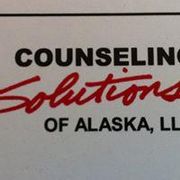What New Moms Should Know About Postpartum Depression

For first-time mothers, the birth of a baby is an emotional moment that can be both exciting and nerve-racking. Something new moms might not expect is postpartum depression. These feelings of sadness and hopelessness can be confusing and scary, but you can manage your symptoms and begin building a beautiful life with your family with professional counseling. Here's what you should know about this form of depression.
4 FAQ About Postpartum Depression
What makes it different from “baby blues”?
“Baby blues” is a term used to describe the common emotional and physical experiences of new mothers. Most new moms will go through mood swings, anxiety, irritability, difficulty sleeping, and sadness. This usually starts two or three days after delivery and can last up to two weeks.
However, if the symptoms are severe and last longer than two weeks, this is known as postpartum depression. In rare cases, a severe disorder known as postpartum psychosis may occur. Mothers affected by this mood disorder may experience confusion, delusions, hallucinations, paranoia, and obsessive thoughts about their babies.
What are the symptoms?

Although it is often mistaken for baby blues at first, postpartum depression is typically more intense and longer-lasting. Here are the most common signs:
- Feeling overwhelmed, sad, or hopeless
- Feelings of shame, guilt, or inadequacy as a mother
- Excessive worry or fear
- Frequent crying
- Insomnia or oversleeping
- Loss of appetite or overeating
- Anxiety or panic attacks
- Reduced ability to concentrate or make decisions
- Intrusive thoughts of harming yourself or the baby
- Difficulty bonding with your baby
These feelings and behaviors can be frightening and hard to deal with. If you experience any of the above symptoms, seek guidance from a mental health professional right away.
What causes postpartum depression?
A few factors may contribute to postpartum depression. After giving birth, a sudden change in hormone levels can cause fatigue and sluggishness. Most new mothers are sleep-deprived and overwhelmed with unfamiliar emotions, which can affect their perceived ability to care for themselves and their babies. It is also common for first-time moms to question their identity and future.
Who is at greater risk?
While any first-time mother can develop postpartum depression, some are at a higher risk than others. This includes women with bipolar disorder, depression, or family members with mood disorders. Stressful life events such as a big move, loss of a job, relationship problems, or pregnancy complications can also increase your risk.
If you suspect that you are struggling with postpartum depression, Counseling Solutions of Alaska will help you manage your symptoms so you can spend more time bonding with your baby. Based in Anchorage, this team of mental health experts offers personalized counseling services to help you navigate the complexities of parenting, relationships, grief and loss, and mental health conditions. After an assessment and diagnosis, they'll develop a custom treatment plan to meet your unique needs, which may include individual therapy, stress management, parenting guidance, family counseling, or medication. Call (907) 644-8044 to speak with a compassionate team member. For more information about their services, visit them online.
About the Business
Have a question? Ask the experts!
Send your question

